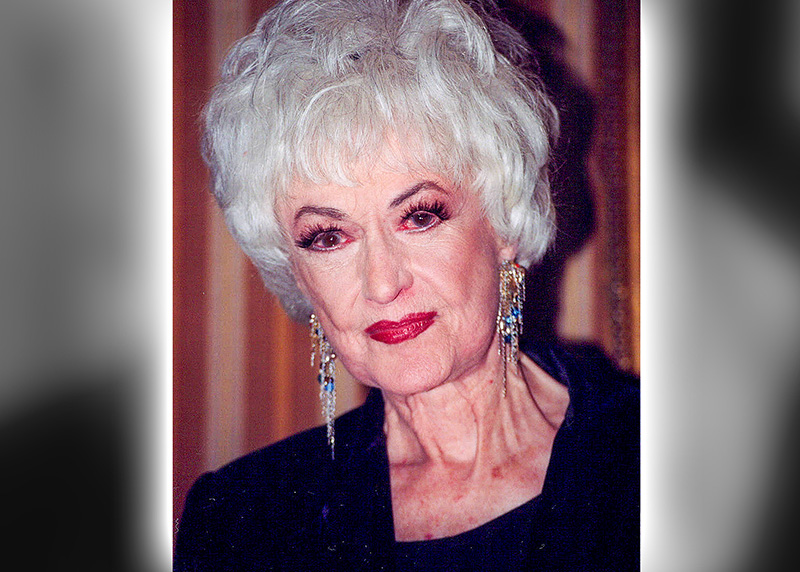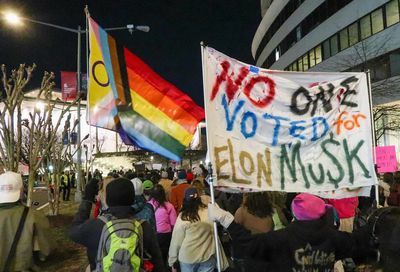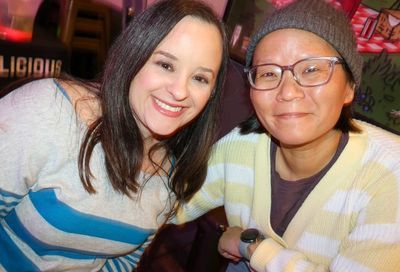Florida Tries to Censor AP Psychology Course Over LGBTQ Content
College Board refuses to comply with Florida Department of Education's request to remove lessons related to sexual orientation and gender identity.

The state of Florida has “effectively banned” the Advanced Placement Psychology course due to the state’s insistence that LGBTQ-related content be removed or risk running afoul of the state’s ban on instruction on sexual orientation or gender identity in K-12 classrooms.
“We are sad to have learned that today the Florida Department of Education has effectively banned AP Psychology in the state by instructing Florida superintendents that teaching foundational content on sexual orientation and gender identity is illegal under state law,” the College Board, which runs the Advanced Placement program, said in a news release.
Officials with the Florida Department of Education told school superintendents that they may offer the AP Psychology course in their districts, but only if material related to sexual orientation or gender identity is removed, William “Bill” Montford III, the chief executive at the Florida Association of District School Superintendents, who was on the call, told The Washington Post. Montford said districts were instead encouraged to teach a modified version of the class.
But the College Board has said that any modified version of the class that excises mentions of sexual orientation or gender identity will not be compliant with college requirements, and therefore cannot be called an “Advanced Placement” course.
“[College Board] will not modify our courses to accommodate restrictions on teaching essential, college-level topics. Doing so would break the fundamental promise of AP: colleges wouldn’t broadly accept that course for credit and that course wouldn’t prepare students for careers in the discipline,” the organization said in a statement.
“The learning objective within AP Psychology that covers gender and sexual orientation has specifically been raised by some Florida districts relative to these recent regulations. That learning objective must remain a required topic, just as it has been in Florida for many years. As with all AP courses, required topics must be included for a course to be designated as AP.”
According to the Post, 562 schools across Florida offer AP Psychology. Last year, according to the College Board, more than 28,600 Florida students took the AP Psychology course exam — comprising just under 10% of the total 292,000 students across the nation who took the exam.
But by removing parts of the required psychology curriculum, Florida schools would be effectively banning the course, and those who take it would not receive college credit — which is the very reason why students take AP-style courses.
“Any AP Psychology course taught in Florida will violate either Florida law or college requirements,” the College Board said in a statement. “We advise Florida districts not to offer AP Psychology until Florida reverses their decision and allows parents and students to choose to take the full course.”
With the state holding firm on its demands to censor the curriculum, school districts must now decide whether to alter the course, teach the curriculum as is and risk violating state law, or can come up with another alternative course that will grant students college credit without mentioning LGBTQ-related topics.
Montford told the Post that his organization’s advice to its members is to “follow the law” and not teach prohibited subjects. But he said the group took no position on altering the course or replacing it with an alternative.
Under Florida’s so-called “Parental Rights in Education” law, dubbed the “Don’t Say Gay” law by critics, teachers are prohibited from providing instruction on sexual orientation, gender identity, or gender expression in all K-12 classrooms, with rare exceptions for high school-level sex education classes or biology classes where sexual orientation may be mentioned in passing and in the abstract. Teachers who teach such topics can have their teaching licenses suspended or revoked.
Republican Gov. Ron DeSantis has championed the law as part of a crackdown on “woke” topics and “gender ideology,” which he claims have infiltrated classrooms without informing parents beforehand, usurping their right to make decisions about their children’s exposure to topics to which they may object.
Cassandra Palelis, a spokeswoman for the Florida education department, rejected the assertion that the state was “banning” the course, instead blaming the College Board for trying to block the course from being taught.
“We encourage the College Board to stop playing games with Florida students and continue to offer the course and allow teachers to operate accordingly,” she said. She also pointed to two other organizations that offer advanced coursework — the International Baccalaureate program and Cambridge International — who say their psychology courses are compliant with the law, because they give districts flexibility to pick and choose among various lesson options.
According to Palelis, the flexibility given by those other courses proves that psychology can be taught without touching on topics related to sexual orientation or gender identity.
The Florida Department of Education had previously requested that the College Board review its materials and ensure that any topics broached in the course comply with “Don’t Say Gay” law. But the College Board refused to alter its course, calling gender identity and sexual orientation “essential topics.” That comports with the American Psychological Association’s view that any psychology course should teach about gender identity and sexual orientation, as they are topics that mental health professionals may encounter in their practice.
But some people familiar with the AP Psychology course have argued that the state of Florida is overreacting to the LGBTQ content contained in the course, which is minimal.
Since the course launched in 1993, it has asked students to “describe how sex and gender influence socialization and other aspects of development.” But Elliott Hammer, a professor of psychology at Xavier University of Louisiana and chief reader for AP psychology exams, told the Post that the only real requirement is that students learn the definitions of, and differences between, sexual orientation and gender identity. While some individual teachers may choose to go further in depth on a topic, that is left up to their discretion
“It’s a pretty small topic,” Hammer said.
Rachel Chapman, an Orlando-based teacher who has taught AP Psychology for 17 years, also characterized the extent of LGBTQ-related content as “scant,” but argued that talking about sexual orientation and gender identity is important to understanding the human experience. While she is willing to teach a different curriculum if she has to, but she worries that altering or censoring the curriculum will deprive students of knowledge they’d typically learn in a college course.
“The politicization of it is completely baffling,” Chapman told the Post. “Because [the course] really is just seeking truth.”
The Florida Department of Education previously clashed with the College Board back in January over its AP African American studies class after officials declared the curriculum to “lack educational value” and of being politically-motivated. The College Board subsequently modified the course, in response to conservative complaints.
But with AP Psychology, the organization has decided to hold a firmer line on negotiating away parts of the curriculum, apparently not eager to receive flak for watering down yet another course.
“We have learned from our mistakes,” the College Board said in a statement, “and know that we must be clear from the outset where we stand.”
Support Metro Weekly’s Journalism
These are challenging times for news organizations. And yet it’s crucial we stay active and provide vital resources and information to both our local readers and the world. So won’t you please take a moment and consider supporting Metro Weekly with a membership? For as little as $5 a month, you can help ensure Metro Weekly magazine and MetroWeekly.com remain free, viable resources as we provide the best, most diverse, culturally-resonant LGBTQ coverage in both the D.C. region and around the world. Memberships come with exclusive perks and discounts, your own personal digital delivery of each week’s magazine (and an archive), access to our Member's Lounge when it launches this fall, and exclusive members-only items like Metro Weekly Membership Mugs and Tote Bags! Check out all our membership levels here and please join us today!

























You must be logged in to post a comment.